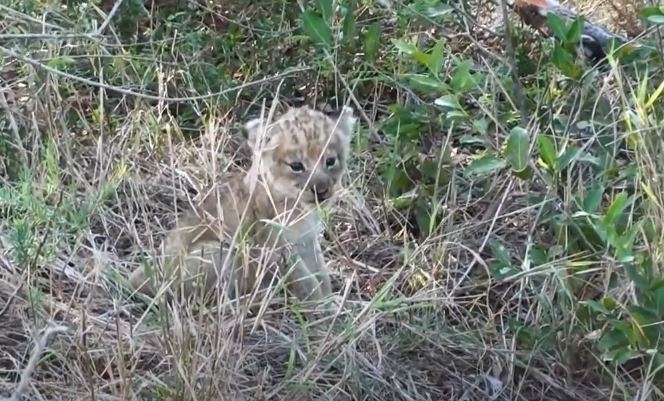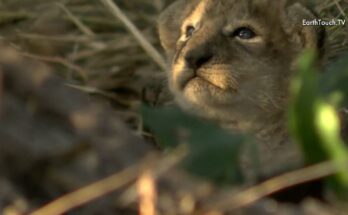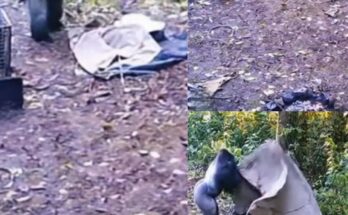
Have you ever heard a lion cub calling its mother? The sound is unexpectedly soft, even a little heartbreaking. Unlike the mighty roar we associate with adult lions, a cub’s call is high-pitched, weak, and filled with vulnerability. It’s a gentle reminder that even the king of the jungle starts life in a place of deep dependence.
Lion cubs are born blind and helpless, relying completely on their mothers for warmth, food, and protection. When separated from her, the cub lets out a series of faint cries — mewing or squeaking sounds — as it tries to reconnect. These calls aren’t just noise; they are full of instinct and emotion, a primal signal that tugs at the heart of any listener. The mother, even if far away, will recognize her cub’s voice among others and return to its side, often in a hurry.
Hearing such a sound in the wild, or even in a documentary, shifts your perception of these animals. It strips away the fierce, powerful image we’re used to and reveals a moment of tenderness, of raw need. It reminds us that nature is not just about survival and strength — it’s also about connection, nurturing, and family.
The next time you hear about lions, try to imagine that quiet moment: a tiny cub, lost and calling out, and a mother lion racing back through the grasslands to answer that call. It’s a small sound in the vast African savannah, but it carries a world of meaning — and a powerful lesson in love, instinct, and the unbreakable bond between mother and child.


